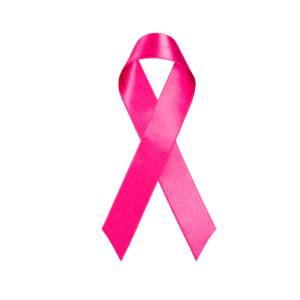
In overweight women, aspirin or other drugs that reduce inflammation might make certain breast cancers more treatable, researchers suggest.
Hormone-driven breast cancer was less likely to return in overweight women who regularly used anti-inflammatory medicines, they found.
But their findings don't prove the drugs prevent cancer and it's too soon to tell women to start taking them to protect against cancer recurrence, the researchers warn.
Still, senior researcher Linda deGraffenried of The University of Texas in Austin told Reuters Health said, "I was probably as surprised as anyone that we found such a dramatic effect that we did."
She and her colleagues write in the journal Cancer Research that in past studies, breast cancer outcomes tended to be worse in obese women than in thinner women.
That's thought to be particularly true for postmenopausal women with a type of breast cancer that is fuelled by the hormone oestrogen.
Women produce significantly less oestrogen after menopause, but an enzyme in fat still makes oestrogen from other compounds. Post-menopausal women with oestrogen-driven breast cancer can take medicine to stop that process, but those drugs are less effective among the obese.
To see if there was a link between use of so-called non-steroidal anti-inflammatory drugs, or NSAIDs, and the risk of breast cancer returning, the researchers looked at data from 440 women treated in Texas for oestrogen-driven breast cancer between 1987 and 2011. Most of the women were overweight or obese and had gone through menopause.
NSAIDs - including aspirin, ibuprofen and naproxen - reduce inflammation throughout the body.
About 6 percent of women who reported regular NSAID use had their cancers return, compared to about 12 percent of those who didn't report regular NSAID use.
The cancers that did return among those who used NSAIDs also tended to reappear later than the cancers of those who didn't take NSAIDs, the researchers found.
Using lab experiments and blood samples, the researchers then sought to find an explanation for the link between regular NSAID use and the risk of returning breast cancer among overweight women.
Compared to normal weight women, deGraffenried said the lab results suggest that the bodies of overweight women are more hospitable environments to oestrogen-driven breast cancers and make it more difficult for treatments to work.
By reducing inflammation through the use of NSAIDs, the environment within the bodies of obese women in which the cancer lives becomes more like the environment of normal weight women.
"We are really truly starting to appreciate that it takes a village to support a cancer growth," deGraffenried said.
It's too soon to tell obese women to start taking aspirin or other NSAIDs to reduce the risk of their breast cancer from coming back, she and another researcher said.
"What this study does is provide more evidence for the plausibility of this," Dr. Clifford Hudis, who was not involved with the new study, told Reuters Health.
Hudis, chief of the Breast Cancer Medicine Service at Memorial Sloan Kettering Cancer Center in New York City, said the new study had some limitations.
"The women in this study were not randomly assigned to take or not take the drug in question," he said. "The doctor recommended it to them or they chose to take it for some other reason. It wasn't assigned to them. It does not show and it's far short of showing causation."
More reliable studies are being planned, deGraffenried said.
"These studies give promise but they're still preliminary," she said.




 Publications
Publications
 Partners
Partners















